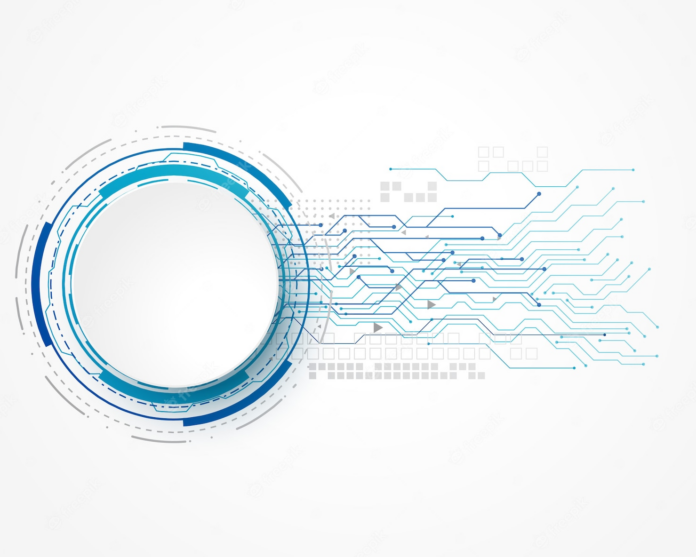Maximizing Productivity: Essential Tips for Choosing the Perfect Laptop for Your Business
Introduction:
In today’s fast-paced digital world, having the right tools is crucial for maximizing productivity in any business. One such tool that plays a vital role in enhancing efficiency and effectiveness is a laptop. Whether you are a freelancer, small business owner, or part of a large corporation, choosing the perfect laptop can significantly impact your work performance. In this article, we will explore some essential tips to consider when selecting a laptop that can help you maximize productivity and take your business to new heights.
Heading 1: Understanding Your Business Needs
To choose the perfect laptop for your business, it is essential to first understand your specific needs. Different professions and industries require different specifications and features. For example, if you are a graphic designer, you may need a laptop with a high-resolution display and powerful graphics processing capabilities. On the other hand, if you are a writer or content creator, a laptop with a comfortable keyboard and long battery life may be more important. Assessing your business needs will help you narrow down your options and find a laptop that aligns perfectly with your requirements.
Heading 2: Consider Portability and Size
Portability is a crucial factor to consider when choosing a laptop for your business. Depending on the nature of your work, you may need to carry your laptop with you to client meetings or work remotely. In such cases, a lightweight and compact laptop will be more convenient and practical. Additionally, the size of the laptop’s screen should also be taken into account. While a larger screen may provide a better viewing experience, it can also make the laptop bulkier and less portable. Strike a balance between portability and screen size to ensure optimal productivity.
Heading 3: Processing Power and Performance
The processing power and performance of a laptop are directly linked to its ability to handle complex tasks and run resource-intensive software smoothly. When choosing a laptop for your business, pay close attention to the processor, RAM, and storage capacity. A powerful processor, ample RAM, and sufficient storage will enable you to multitask efficiently, run demanding applications seamlessly, and store your files securely. Investing in a laptop with excellent processing power and performance will undoubtedly enhance your productivity and prevent frustrating lags or crashes.
Heading 4: Battery Life and Charging Options
In today’s fast-paced business environment, being constantly on the move is often a reality. Therefore, having a laptop with a long battery life is crucial for uninterrupted productivity. Look for laptops that offer at least 8-10 hours of battery life, as this will ensure that you can work without the need for frequent charging. Additionally, consider the charging options available. Some laptops support fast charging, which can be a game-changer when you are running low on battery and need a quick boost. Opting for a laptop with versatile charging options will provide you with flexibility and convenience.
Heading 5: Keyboard and Ergonomics
As a business professional, you are likely to spend a significant amount of time typing and working on your laptop. Therefore, the comfort and usability of the keyboard are vital considerations. Look for laptops with well-spaced keys, good tactile feedback, and backlit options for working in low-light environments. Additionally, consider the overall ergonomics of the laptop, including the positioning of the trackpad and the angle at which the keyboard is placed. A comfortable keyboard and ergonomic design will minimize strain and maximize your productivity during long work hours.
Heading 6: Connectivity and Ports
In today’s digital world, staying connected is more important than ever. When choosing a laptop for your business, ensure that it offers a wide range of connectivity options. Look for laptops with multiple USB ports, HDMI ports, and an SD card slot. Having various connectivity options will allow you to connect to external devices, transfer data easily, and connect to external displays for presentations or meetings. Additionally, consider if the laptop supports the latest wireless standards, such as Wi-Fi 6, for faster and more reliable internet connectivity.
Heading 7: Security Features
In the era of cybersecurity threats, prioritizing the security of your business data is of utmost importance. When selecting a laptop, opt for models that offer robust security features. Look for laptops with biometric authentication options, such as fingerprint sensors or facial recognition, to ensure that only authorized individuals can access your device. Additionally, consider laptops that offer hardware-based encryption, such as Trusted Platform Module (TPM), for enhanced data protection. Taking these security features into account will provide you with peace of mind and safeguard your business information.
Heading 8: Consider Your Budget
While it is tempting to go for the latest and most feature-packed laptop, it is essential to consider your budget as well. Set a realistic budget and prioritize the features that are most important for your business needs. Remember that a higher price does not always guarantee better performance or productivity. Research and compare different laptop models within your budget range to find the best value for your money. Strike a balance between performance, features, and affordability to make an informed decision.
Conclusion:
Choosing the perfect laptop for your business is a decision that should not be taken lightly. By understanding your business needs, considering portability, processing power, battery life, ergonomics, connectivity, security features, and your budget, you can make a well-informed choice that maximizes productivity. Remember, selecting a laptop is an investment in your business’s success and your own professional growth. Take the time to research, compare, and analyze your options before making a decision that will empower you to reach new heights of productivity.
FAQs:
1. Can I use a gaming laptop for my business needs?
While gaming laptops often have powerful specifications, they may not always be suitable for business purposes. Gaming laptops tend to be bulkier, heavier, and have shorter battery life compared to laptops designed specifically for business use. However, if your business requires intensive graphics processing or video editing, a gaming laptop may be a viable option.
2. Should I prioritize a touchscreen feature in my business laptop?
The need for a touchscreen feature depends on your specific business requirements. Touchscreen laptops can be beneficial for certain professions, such as designers or artists who need precise control over their work. However, for most business tasks, a traditional keyboard and touchpad combination may be more than sufficient.
3. How often should I upgrade my business laptop?
The frequency of laptop upgrades depends on several factors, such as technological advancements, your business needs, and budget constraints. As a general guideline, consider upgrading your laptop every 3-5 years to keep up with the latest hardware, software, and security features. However, if your current laptop is still performing well and meeting your needs, there may not be an immediate need for an upgrade.
4. Is it better to choose a Windows or Mac laptop for my business?
The choice between Windows and Mac laptops largely depends on personal preference and the software ecosystem you are most comfortable working with. Both Windows and Mac laptops offer a wide range of productivity tools and applications. Consider factors such as compatibility with your existing software, user interface familiarity, and budget when deciding between the two.
5. Are extended warranties worth considering for business laptops?
Extended warranties can provide peace of mind and additional coverage for your business laptop. However, carefully evaluate the terms and conditions of the warranty, as well as the reputation of the manufacturer or service provider. In some cases, the cost of the extended warranty may not be justified if the laptop already comes with a standard warranty and you practice good maintenance and care.
The article discusses the potential benefits and risks of using artificial intelligence (AI) to diagnose diseases. It highlights the progress made in using AI algorithms to identify various illnesses, such as cancer and heart disease, with high accuracy rates. AI has the potential to improve the speed and efficiency of diagnosis, leading to earlier detection and treatment. However, there are concerns about the reliability and ethical implications of relying solely on AI for diagnosis, as it may overlook important contextual information and human expertise. Additionally, the article emphasizes the need for rigorous testing and regulation of AI diagnostic tools to ensure patient safety and avoid potential biases. Overall, AI has promising applications in disease diagnosis, but it should be used as a complementary tool alongside human expertise rather than a replacement.
Fact 1: The first-ever computer programmer was a woman named Ada Lovelace. In the 1840s, she wrote the algorithm for Charles Babbage’s Analytical Engine, making her the world’s first programmer.
Joke 1: Why did Ada Lovelace never get caught for her computer crimes? Because she always used proper “coding” etiquette!
Fact 2: The most powerful supercomputer in the world as of June 2021 is Fugaku, developed in Japan. It can perform over 442 quadrillion calculations per second!
Joke 2: Why did the supercomputer start dating? Because it had a high “processing” rate for finding the perfect match!
Fact 3: The average person spends around 6 hours and 42 minutes online each day, according to a 2020 report. This includes time spent on social media, browsing websites, and using various online services.
Joke 3: Why did the internet user bring a ladder to their computer? Because they heard it had a “high connection” and wanted to climb up to the cloud!




